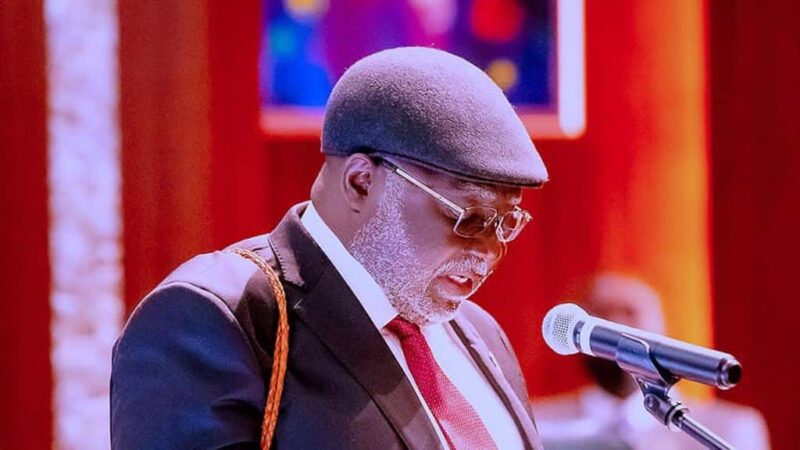Chief Justice Olukayode Ariwoola retired on Thursday after reaching the age of 70, concluding his term as the Chief Justice of Nigeria.
The retirement ceremony took place at the Supreme Court complex in Abuja, where Ariwoola also unveiled the new Supreme Court Rules 2024, a significant update from the outdated regulations established in 1985.
In his farewell address, Ariwoola highlighted the pressing need for modernization in the Supreme Court’s procedural rules.
When he assumed office two years ago, he was struck by the fact that the rules governing the court’s operations had remained unchanged for nearly four decades.
These rules, created before the advent of modern technologies like the internet and electronic transactions, were no longer adequate to address contemporary challenges in the legal system.
He explained, “At the time the Supreme Court Rules 1985 were made, things that are now ubiquitous, like information technology, electronic transactions, and global telecommunication, were either not in existence or in their formative stages. How, then, could such outdated rules be adequate for today’s challenges?”
To address this, Ariwoola established a Rules Committee tasked with thoroughly reviewing and updating the old regulations. The culmination of their efforts is the New Supreme Court Rules 2024, which Ariwoola signed off on earlier this month in accordance with Section 236 of the 1999 Nigerian Constitution.
Ariwoola emphasized the importance of having up-to-date procedural rules, stating that they are essential for the court’s effective functioning and must adapt to the evolving needs of justice.
During his speech, he thanked his colleagues, including the incoming Chief Justice, Justice Kudirat Kekere-Ekun, and other notable justices like Justice Inyang Okoro and Justice Moronkeji Ogunwumiju, for their support and dedication to the new rules.
He also acknowledged Dr. Muiz Banire (SAN) and the President of the Nigerian Bar Association, Mr. Yakubu Maikyau (SAN), for their contributions.
Ariwoola reviewed the Supreme Court’s workload for the 2023/2024 legal year, noting that the court received 1,124 cases, including civil, criminal, and political appeals. He reported that the court delivered 248 judgments and rulings during this period.
He also mentioned the Justice Sector Reform Summit held in April, a collaborative effort involving the National Judicial Institute, the Ministry of Justice, and the Nigerian Bar Association.










